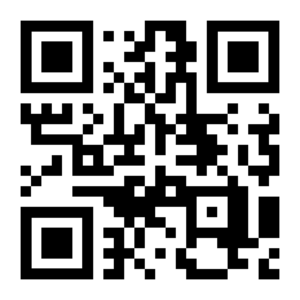How to load yourself with work and be known as a confirmed workaholic?
Today, there’s a few people working under a stable schedule from 9 to 5, especially in IT. The boundaries between work and personal life are gradually merging, the industry requires us to be fully involved. Yes, we often don’t mind – we are fascinated with the dynamics, a variety of tasks. The image of a constantly busy person has now become so popular that many are eager to overload themselves.
How to allow overload and burnout in the shortest possible time?
Let the work eat all your time.
No going to the cinema, shop or for a delicious dinner in your favorite cafe. Entertainment is a lot of lazy people, and you need to work.
People don’t notice that they are stressed. While you can dilute your emotional state with shopping or going to the movies, everything is in order. But as soon as you begin to limit yourself to the simplest things, it’s time to think twice: something went wrong.
If you want to change it, take a timeout. Treat yourself to something nice, especially if you have managed to complete several important tasks before this. With renewed vigor, the brain will proceed to the following tasks more eagerly.
Prioritize and plan, do all the most important and urgent. Leave strategic things for later. More micromanagement.
In fact, this is the most widespread and ineffective time management technique.
We were all taught that we must first do urgent and important tasks, and only then move on to the rest. But if you want to really be surprised at your own successes, try to prioritize important, but not urgent matters. They usually form the basis of your personal career development strategy. You won’t go far on micromanagement.
Get a fat diary and dump all the tasks randomly there. Do not specify a runtime.
Why try to limit yourself to extra deadlines, which mean even more stress. Besides, you never know how long this or that work will continue. Even better is to fit on one page all the tasks that came to mind. And it doesn’t matter if you can manage to do them all in a day, or part of them will certainly be put off until tomorrow.
Minor tasks must be a priority. You need to start with them, even if they are insignificant.
But in 3 hours you will have half a page of crossed out points. This is wonderful – the brain is delighted with completed tasks. And it’s nothing that in the middle of the day a difficult task hangs over you like a hammer, requiring complete immersion and renunciation of all external stimuli. Just one point that can be put off until tomorrow, the day after tomorrow …
Experts say that procrastination is giving importance to unimportant things. For some, this is a way to catch a break, give the brain a discharge. Sometimes it’s really useful, especially when you have worked hard before. But for the most part, this is a way to postpone complex and difficult tasks. The brain is afraid of them and in every possible way tries to avoid. Therefore, if you want to be truly excited with achievements, plan a difficult or creative task for the period of greatest effectiveness – 2 hours after you finally woke up. If you have done it, you can proceed to the small tasks, and since you have already got into a rhythm, you will cope with them much faster. An oppressive feeling will no longer haunt you until the end of the day.
Do more things at the same time.
Develop a concept for a new project, simultaneously correspond with colleagues and listen to the new album of your favorite band. In the end, you will get a gift set of an unfulfilled important task, decorated with self-discontent at the end of the day.
Things are piling up, and will be moved the next day. The result is low productivity, stress, and so on.
Multitasking or switch cost consumes up to 40% of the working time. If you have them – OK. If not, here is the solution: order and prioritization.
- Determine in advance what is routine and what requires mental effort.
- Detail cognitive and creative tasks and do separately from each other.
- When you are tired, go on to the routine.
In a word, if any of these points has become your usual behavior, you should think about it and do the opposite.
Time management is not about restrictions and not about constant rush. This is about the optimal distribution of time. Learn to value and feel your time. After all, this is the most valuable resource.


 Games During Training: A Necessity or A Challenge of the Time?
Games During Training: A Necessity or A Challenge of the Time?
